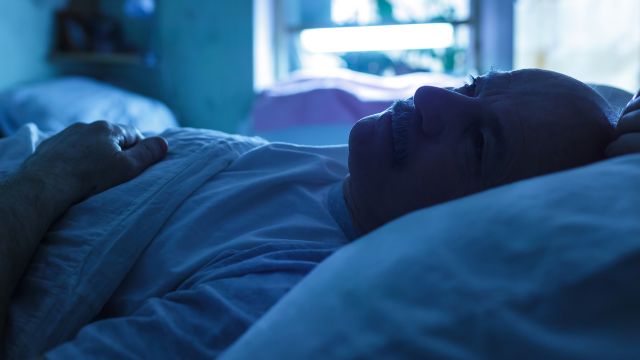Being diagnosed with lung cancer can bring about a range of powerful emotions. Many people report anger, fear, or guilt, among other feelings, and a significant number of patients experience depression or anxiety. Sometimes, these reactions can influence your quality of life, as well as that of your loved ones.
Whether you’re a new patient or you’re almost finished with treatment, intense emotions are normal—and you don’t have to deal with them alone. With help from your family, friends and cancer care team, you can feel better in the days ahead.
The emotional impact of a lung cancer diagnosis
Though everyone copes differently, there are countless reasons people with lung cancer might be distressed. New patients must contend with more tests, appointments, and complicated medical concepts. Normal routines can be upset, and plans for the future may have to be postponed. Some people feel guilty that they’ve caused their disease, or worry they’ll be a burden. Many are concerned about changes in their family life, or their ability to work and pay bills.
As time goes on, disease symptoms or side effects from treatment—such as nausea or fatigue—can add to stress. Patients may dread appearing sick, and physical changes can affect their overall body image. Many people with lung cancer fear or grieve the prospect of feeling pain, losing autonomy, or dying.
Up to a half of people with cancer report feeling significant distress. While these emotions are common and natural, they can progress into serious mental health issues like depression and anxiety.
Addressing your emotional health
When you’re in distress, being honest about your emotions is often the first step towards feeling better. People with lung cancer should understand it’s okay to be sad, angry, or fearful—and it’s healthy to express these reactions to loved ones, who can offer support. In fact, research suggests cancer patients with better social support have reduced depression and anxiety, as well as an improved quality of life.
Speak honestly with your cancer care team, too. They can answer questions and help you learn about your disease; the more you know, the more in-control you may feel. Your providers can also screen you for mental health issues and recommend specialists to help you cope, such as a social worker or psychiatrist with experience treating cancer patients.
Whether they meet online, over the phone, or in real life, support groups are valuable resources, as well. Other cancer patients and survivors can offer advice, insight, and an ear to listen—in a way that few others can. Talk with your healthcare team, search Google, or reach out to a local medical center to find a group that fits your needs.
At home, adopt healthy strategies to help improve your emotional state. Try deep breathing exercises or distracting yourself with relaxing activities like reading, knitting, woodworking, or even art therapy such as adult coloring books. Find comfort in your faith. Get adequate sleep each night. Eat regular, nutritious meals and be as active as you can manage. Even mild physical activity can help redirect your focus and improve your health, though cancer patients should consult their healthcare provider before starting a new exercise regimen.
And of course, try to be patient with yourself. With treatment and support, you’ll likely feel better with time.





